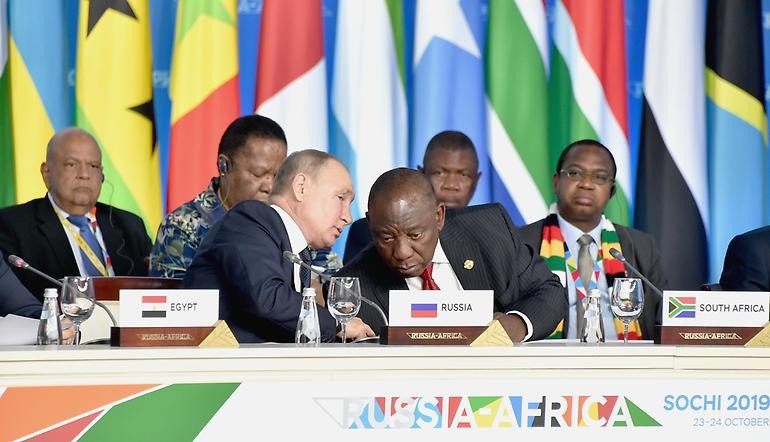Over the past few years, Russia has intensified its engagement with African nations, forging what could be described as an era of reinvigorated relations. This has been evidenced by increased trade, security cooperation, and an upswing in diplomatic relations, including the inaugural Russia-Africa Summit in Sochi in 2019. The relationship between Russia (formerly the Soviet Union) and Tanzania has evolved considerably over the years, marked by periods of close collaboration, distance, and re-engagement.
Historical Context
Tanzania (then Tanganyika) established diplomatic relations with the Soviet Union shortly after gaining independence in 1961. The Soviet Union was among the first countries to recognize the newly independent nation. The relationship between the two countries was particularly close during the presidency of Julius Nyerere, Tanzania’s first president.
This was a time when many African nations, including Tanzania, aligned themselves with the socialist bloc during the Cold War era. The Soviet Union provided Tanzania with significant aid, including military assistance, scholarships for Tanzanian students, and support for infrastructure projects. Notably, the Soviet Union provided aid for the construction of the Urafiki Textile Mill in Dar es Salaam and the 1,860-kilometer TAZARA railway line connecting Zambia and Tanzania, which remains one of the most visible symbols of Russia-Tanzania cooperation.
With the dissolution of the Soviet Union in 1991, Russia faced significant internal challenges, and its engagement with Africa, including Tanzania, decreased markedly. However, diplomatic relations between Russia and Tanzania continued, albeit at a lower level.
Russia has been actively re-engaging with Africa recently, and Tanzania has been part of this dynamic. In 2014, Russia wrote off $20 billion of African nations’ Soviet-era debt, which benefited Tanzania significantly. Since then, relations between the two countries have been improving. Areas of cooperation include education (with scholarships for Tanzanians to study in Russia), military cooperation, healthcare, and energy. Russia’s state nuclear energy corporation, Rosatom, signed an agreement with Tanzania in 2018 to build a Center for Nuclear Science and Technology.
However, these strengthened ties have not always translated into unwavering diplomatic support, particularly in multilateral settings such as the United Nations. The vote on the Ukraine conflict serves as a case in point. Several factors can help explain this discrepancy:
The Complexity of International Diplomacy
International diplomacy is a multifaceted and nuanced field. In particular, votes within the United Nations are often influenced by a web of alliances, obligations, and interests. While African countries may value their relationships with Russia, they maintain relations with many other countries, including Ukraine and Western powers opposing Russia’s actions.
Western Influence and Aid Dependency
Many African countries have longstanding ties with Western countries that have historical roots in colonialism but have evolved into complex relationships involving aid, trade, and investment.
The influence of Western nations, particularly those in the European Union and the United States, cannot be understated. These countries have often been more prolific in their engagement with Africa than Russia, and they are significant sources of foreign aid, which African nations might be wary of jeopardizing.
African Union Principles
The African Union’s Constitutive Act emphasizes the principles of sovereignty, non-interference, and the peaceful resolution of conflicts. The situation in Ukraine, widely viewed as a violation of these principles, could thus be problematic for many African nations. Supporting Russia’s actions in Ukraine could set a precedent that African leaders are uncomfortable with, especially given the continent’s history of border disputes and conflicts.
Diverse Interests and Perspectives
It’s important to remember that Africa is not a monolith. With 54 diverse nations, each African country has its unique interests, relationships, and diplomatic strategies. Some countries have closer ties with Russia than others, and each will weigh their votes in a way that best serves their national interests.
While Russia’s engagement with Africa has undoubtedly increased in recent years, it is relatively recent compared to the ties many African countries have with other nations. Trust and influence in diplomacy often take time to build. Despite positive growth in their relations, it’s possible that Russia’s influence in Africa is not yet strong enough to sway votes on contentious issues such as the conflict in Ukraine.
In conclusion, international relations and diplomatic decision-making dynamics are complex and multi-dimensional. The apparent disparity between Russia’s strengthening ties with African nations and their voting patterns at the United Nations can be attributed to various factors. While Russia-Africa relations may continue to grow in the coming years, how this will translate into diplomatic support in multilateral arenas remains to be seen.

